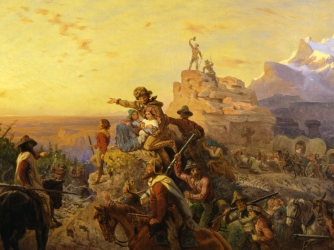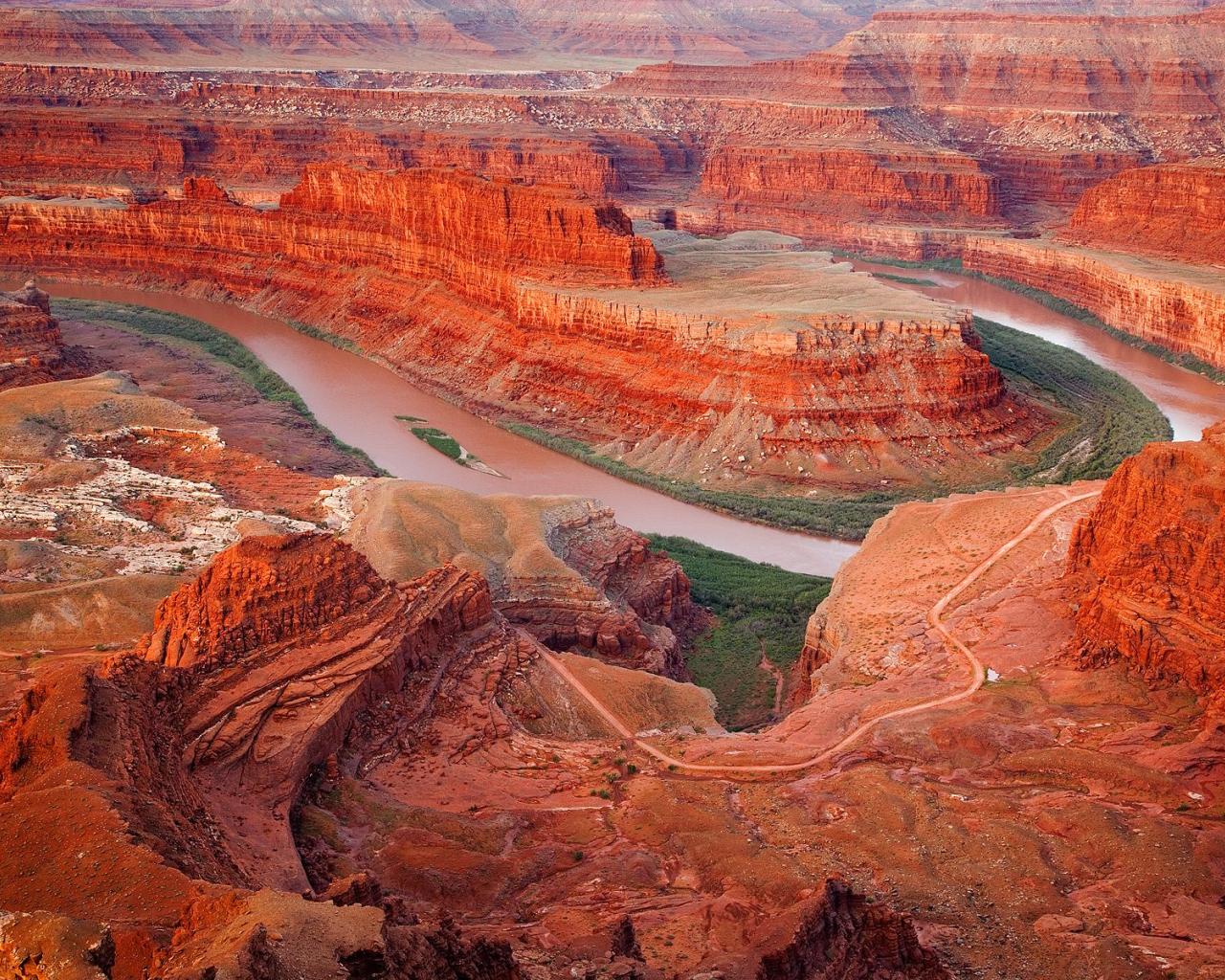"I return to the West every year with my two daughters to explore some new aspect of it. I feel like it beckons me. And while I can't imagine living anywhere else but New England, I still feel like a citizen of the West. I think that's true of all Americans who are touched by its breathtaking beauty, exhilarated by its vast distances and moved by its often-tragic and heroic story." (Ken Burns)

"I see the West as a four-way stop sign of American history, a place of surprising collisions of culture," explains Stephen Ives, director and co-producer of the PBS series The West (http://www.pbs.org/weta/thewest/program/producers/ives.htm). While the American West was the place where dreams were realized, it was also the place where dreams were destroyed. In the nation's effort to fulfill Monroe's Manifest Destiny, The West became a land to be conquered.
As co-producer Ken Burns explains, you cannot separate the United States from the West. It is an integral part of American history. "I return to the West every year with my two daughters to explore some new aspect of it. I feel like it beckons me. And while I can't imagine living anywhere else but New England, I still feel like a citizen of the West. I think that's true of all Americans who are touched by its breathtaking beauty, exhilarated by its vast distances and moved by its often-tragic and heroic story." (http://www.pbs.org/weta/thewest/program/producers/burns.htm)
)

Grand Canyon courtesy http://murphyta.weebly.com/road-trip.html.
The PBS series The West is divided into eight sections. Section One, The People, focusses on explorers Lewis and Clark, at a time when the West was largely undiscovered.
Section Two, Empire Upon the Trails, examines the fur trade, the battle for Texas, the flight of the Mormons to Utah, and the endless line of Conestoga wagons rolling down the Oregon Trail. It also highlights the expulsion of the Cherokee Indians east of the Mississippi to Oklahoma along the famous "Trail of Tears".

Oregon Trail courtesy
http://news.discovery.com/adventure/travel/traveling-the-oregon-trail-photos-150725.htm.

Oregon Trail courtesy
http://news.discovery.com/adventure/travel/traveling-the-oregon-trail-photos-150725.htm.
Episode Three, Speck of the Future, tells the story of the California Gold Rush of 1849, "littering the hills with mining towns and creating the West's first metropolis".
In Episode Four, Death Runs Riot, Burns explains how the Civil War comes early to the West. Abolitionists fight for free soil in Kansas; Mexican Americans rebel along the Rio Grande; and in Utah, federal troops march against Mormon polygamy.
In Episode Five, The Grandest Enterprise Under God, the opening of the transcontinental railroad transforms the West, bringing with it cowboys, buffalo hunters and suffragists.

Buffalo skull pile circa 1870 courtesy
In Episode Six, Fight No More Forever, the federal government imposes its authority over the West. However, three individuals protest: Sitting Bull, Brigham Young and Chief Joseph.
Episode Seven, The Geography of Hope, speaks of the many newcomers to the West, including Chinese Americans, the first of which came to build the railroad. "For every Indian in the West, there were nearly 40 whites." Native Indian children are encouraged to forsake their heritage. The legend of the Wild West is embodied by the greatest showman of the age, Buffalo Bill.
In Episode Eight, One Sky Above Us, settlers race to grab tribal lands, as in the "Oklahoma Land Rush". Native Indians perform ghost dances, hoping to reclaim a lost way of life.
As Stephen Ives explains: "I hope they [the viewers] will come away with a clear eyed sense of what it took for this country to become the United States we know today, both good and bad. I don't think we can every look at The West without feeling what Tom Watkins...describes as a 'mixture of both pride and shame.' I think that's a fundamentally healthy way to look at the history of our nation."

Oklahoma Land Rush circa 1889 courtesy
No comments:
Post a Comment